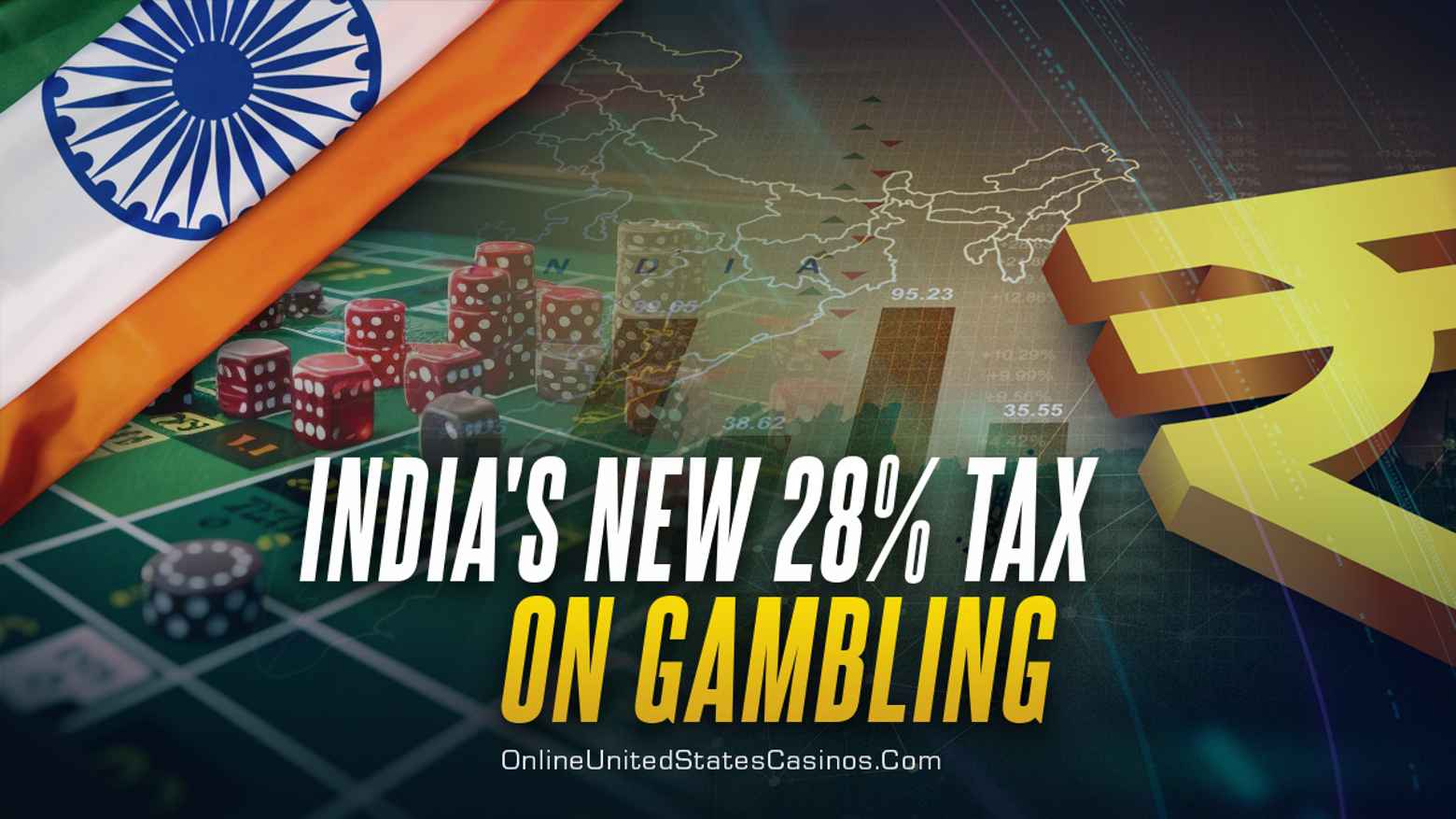When people think of India, they first think of glorious temples, unique festivals, spicy foods, colorful clothing, and famous monuments. Gambling is not something usually linked with Earth’s most populous country. That also stems from gambling not being regulated nationwide or federally in Bharat.
The Public Gambling Act of 1867, still obeyed, proclaims that betting money or any equivalent is illegal in the country. Yet, states are allowed to formulate their regulation of gambling activities, and Sikkim, Daman, and Goa have done so, permitting casinos to operate on their soils. Moreover, these three regions also allow online gambling, with Sikkim permitting Internet lotteries that accept bets from players throughout India.
In the summer of 2023, India’s Finance minister, Nirmala Sitharaman, announced a decision by India’s Goods and Services Tax Council to introduce a 28% indirect tax on funds gathered by online gambling operators from customers. The new rule, proposed initially in May 2022, combines taxation for both games of chance and games of skill.
It represents a 10% increase from the 18% tax fee platforms used to pay. Aside from the nominal difference, this new stipulation that came into effect on October 1, 2023, targeted gaming companies’ revenues more widely, affecting more of their monetary intake. The new policy mandates an increase in wax incidence levied on the wager’s entire face value. Not on the gross revenue they rake in after paying out winnings.
Some have argued that these regulatory changes ignore more than six decades of settled jurisprudence and will only damage the growth of the rising interactive gaming sector, leading to a loss of jobs and diverting Indian gamblers to offshore platforms that do not benefit the Indian economy in any way, only drain funds away from it.
Indian Operators Fear the New Tax Will Bankrupt Them
Their anxiety is justified because authorities, the Goods and Services Tax Council, wish this rule to apply retroactively, going back to July 2017, when India’s goods and services tax was introduced. That means taxes on wagers made must get paid starting from July 2017. According to estimates, that will come up to a total of somewhere in the neighborhood of $18 billion.
Gambling companies report that they will likely get billed amounts ten times their annual revenue, essentially bankrupting them. Those who supported the tax believe that its existence is necessary given the growing addiction rates relating to gambling entertainment among India’s youth, and these new changes will bring about greater accountability and transparency in the sphere.
To combat this challenge, operators argue that they must modify player odds, which will undermine their business models, effectively reducing gambler payouts. This will undoubtedly stimulate more illegal activity and generate less tax revenues overall if that occurs.
That is why experts must take a more flexible taxing stance concerning the gambling industry. And consult with entities within this sector before implementing new rules that can gravely impact it.
Also Read: Exploring Asian-Themed Slot Games: Luck and Fortune Await
Who Benefits From the New Tax?
Even though the goal of the new tax rule is to fill government coffers with more money, without question, the party that will likely most profit from it are internationally-regulated gaming hubs based in smaller nations that accept gamblers from India.
These platforms operate from countries like Curacao that do not impose any taxes on profits companies attain for foreigners, making them an attractive destination for online gambling operators. Their regulators are also fairly lax, allowing sites to partner with many game providers, accept cryptos, and offer alluring bonuses.
That much is evident in this EveryGame casino review, which analyzes the website formerly known as Intertops, one of the most famous offshore gaming/betting sites, renowned as the first one to accept a mobile wager.
Experts doubt that the country will see the expected returns, as many believe that the 28% tax will negatively affect foreign investments in the Indian online gambling industry. Hence, companies based outside India are most likely to profit, with Indian money spilling over to other countries as a byproduct of what many see as a not-thought-through tax.
Also Read: Revolutionizing the Betting Landscape: Virtual Cricket Gambling Emerges as the Latest Sensation!
How Do Other Countries Tax Gambling?
Naturally, gambling tax rates vary widely around the globe, and who plays them also can differ from country to country. In Canada, the UK, Belgium, Sweden, Denmark, Finland, Australia, Italy, Malta, and Hungary, winners pay no taxes on their accumulated rewards from gambling activities. Nevertheless, operators must pay due on their gross gaming revenues in these markets.
For example, in the UK, companies pay 15% to 50% in taxes depending on their GGR. In Denmark, this rate varies per the type of gambling genre affected. For instance, online casino and sports betting revenues get taxed at 20%, but land-based gaming ones get hit with a 45% to 75% rate.
In the US, gamblers must deduct 24% from their winnings, with this amount getting paid as a federal tax, and each state levies a different rate for operators. In Nevada, the tax depends on the GGR, and for a GGR exceeding $134,000 per month, a 6.75% tax gets imposed.

